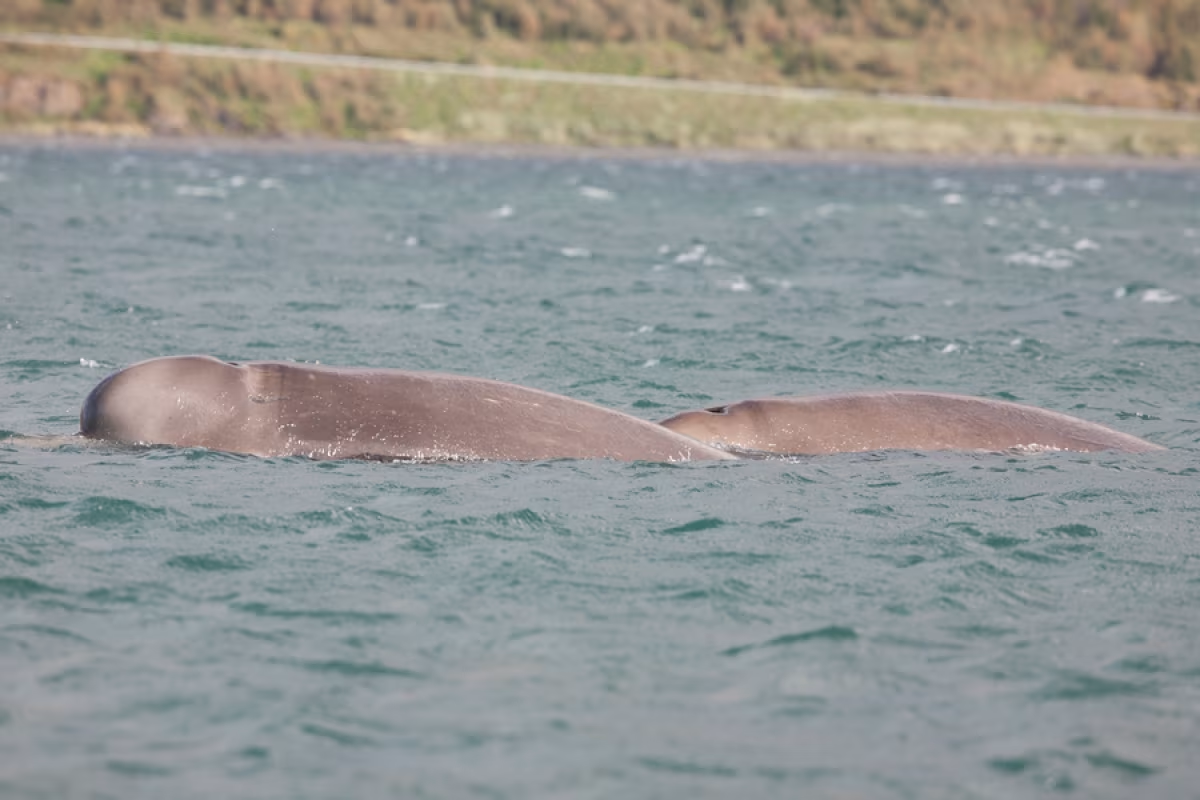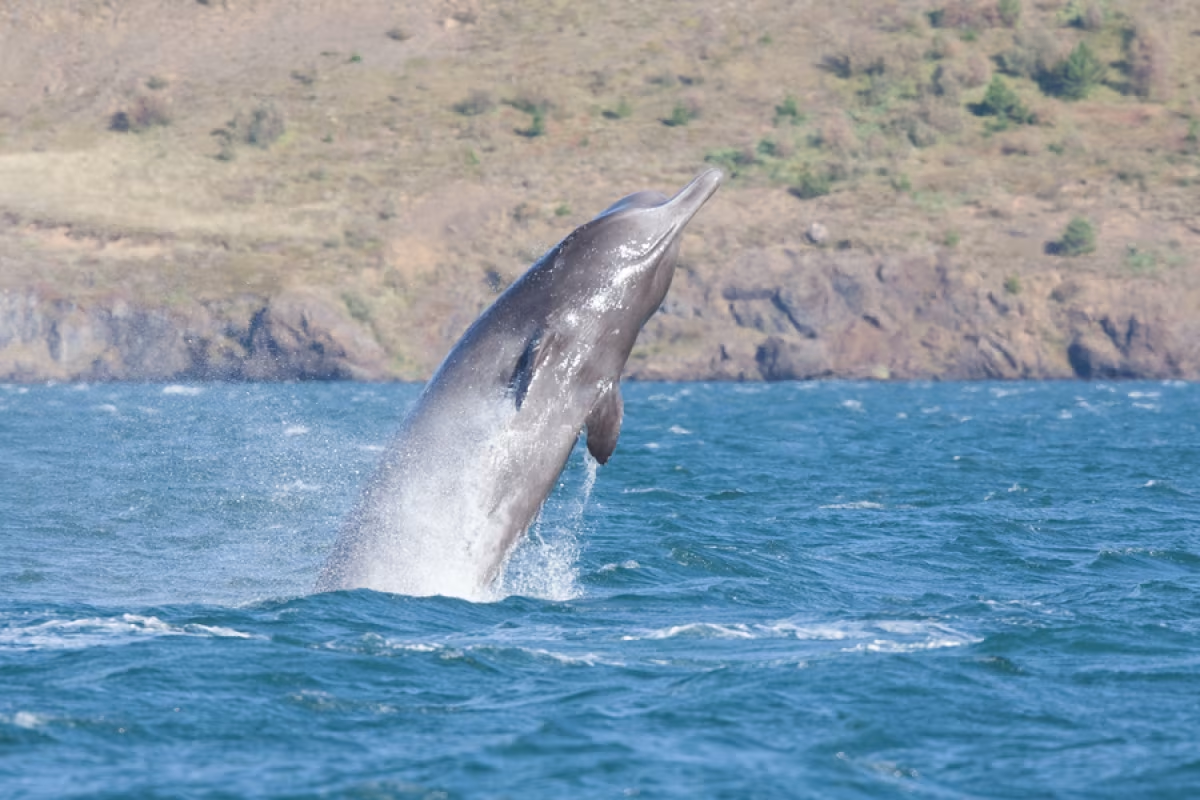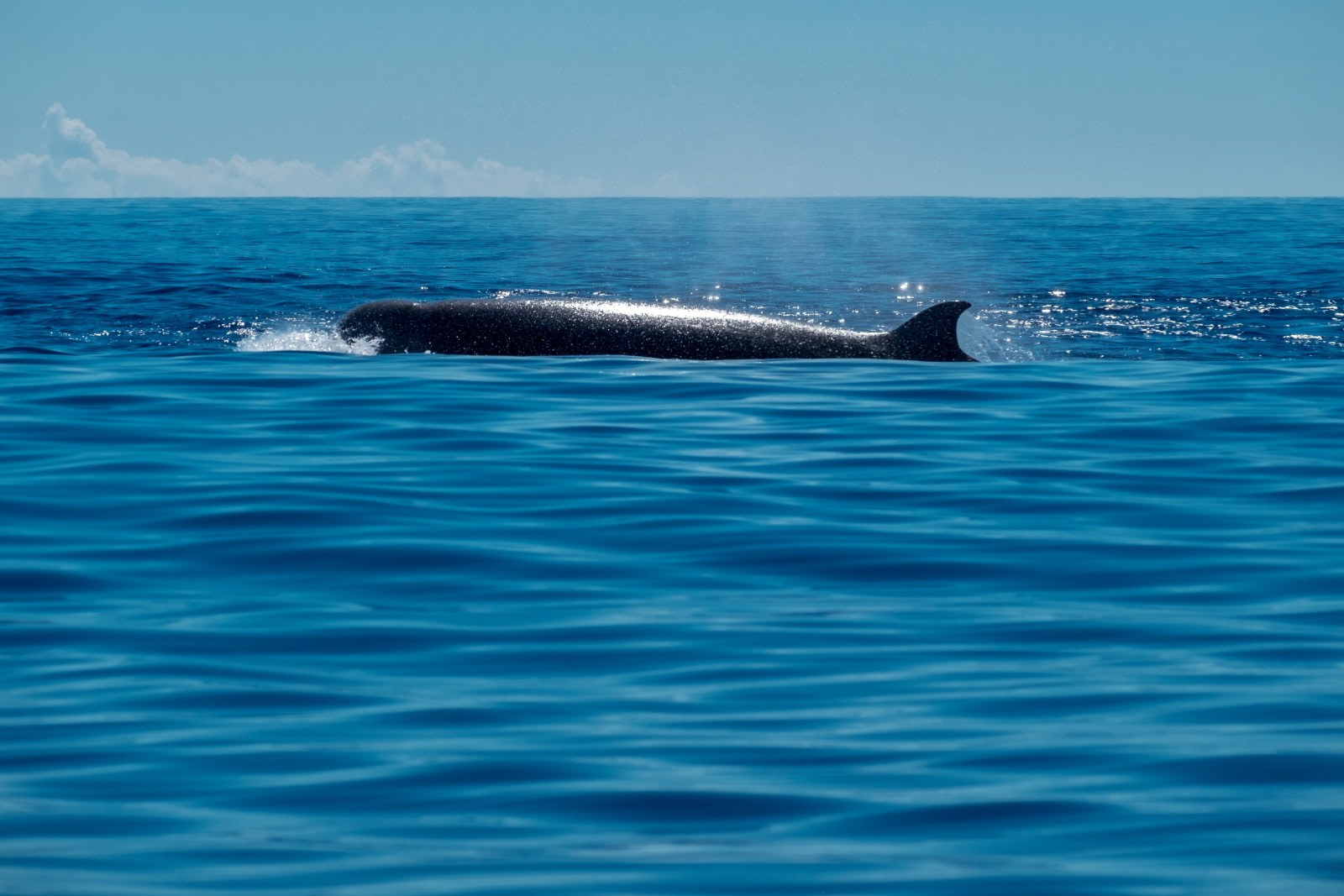Name: North Atlantic Bottlenose Whale (Hyperoodon ampullatus)
Length: 10 to 12 metres.
Weight: 5,800 to 7,500 kilograms.
Location: Northern to Mid-Atlantic Ocean.
Conservation status: Data Deficient.
Diet: Squid, fish, shrimp, sea cucumbers, starfish.
Appearance: Brown or black with lighter shade on underside. Beaks are prominent and coloured lighter than the rest of the body. Small sickle-shaped dorsal fin set well back on the body. Prominent melon.
How do North Atlantic Bottlenose Whales feed?
North Atlantic Bottlenose Whales are deep divers, able to spend almost two hours at a time underwater, although the usual dive is only about ten minutes long.
Are North Atlantic Bottlenose Whales social?
North Atlantic Bottlenose Whales will form small groups to socialise with each other in small groups of 4 to 20 members. These groups are usually segregated by sex.
They are quite friendly and curious when it comes to humans.

Picture by Troels Jacobsen
How fast do North Atlantic Bottlenose Whales swim?
While cruising a North Atlantic Bottlenose Whale swims at about 5 km per hour. They can however burst up to as much as 27 km per hour for short sprints.
What are North Atlantic Bottlenose Whale birthing rituals like?
North Atlantic Bottlenose Whales mature sexually at around 8 years of age. The females will give birth to a single calf every 2 or so years. The breeding season occurs between April and August, with the pregnancy lasting 12 months.
When born the calves are about 3 metres in length and weigh around 300 kg.
How long do North Atlantic Bottlenose Whales live?
North Atlantic Bottlenose Whales live around 35 years.
How many North Atlantic Bottlenose Whales are there today?
There are no concrete numbers, but estimates place the North Atlantic Bottlenose Whale population at anything between 10,000 and 45,000.
Do North Atlantic Bottlenose Whales have any natural predators?
It’s not entirely clear if North Atlantic Bottlenose Whales are killed by other animals, though they have been spotted with scars from shark bites.

Picture by Troels Jacobsen
7 Bountiful North Atlantic Bottlenose Whale Facts
- North Atlantic Bottlenose Whales are one of the deepest-diving mammals known, able to dive as deep as 1453 metres.
- North Atlantic Bottlenose Whales prefer deep waters and rarely venture into areas that are shallower than 800 metres.
- North Atlantic Bottlenose Whales were heavily hunted around the early 1900s. Their friendly disposition made them easy targets. They also tended to stay near other wounded whales, getting themselves caught in the process.
- The scientific name ampullatus comes from the Latin word ampulla which means “bottle” or “flask”.
- North Atlantic Bottlenose Whales are the largest members of the beaked whale family (Ziphiidae).
- North Atlantic Bottlenose Whales sometimes sport shark bite scars that look somewhat like cookie cutter impressions.
- North Atlantic Bottlenose Whales have two teeth in their bottom jaw, but they only emerge on the males.



